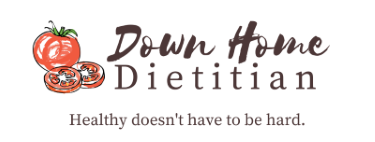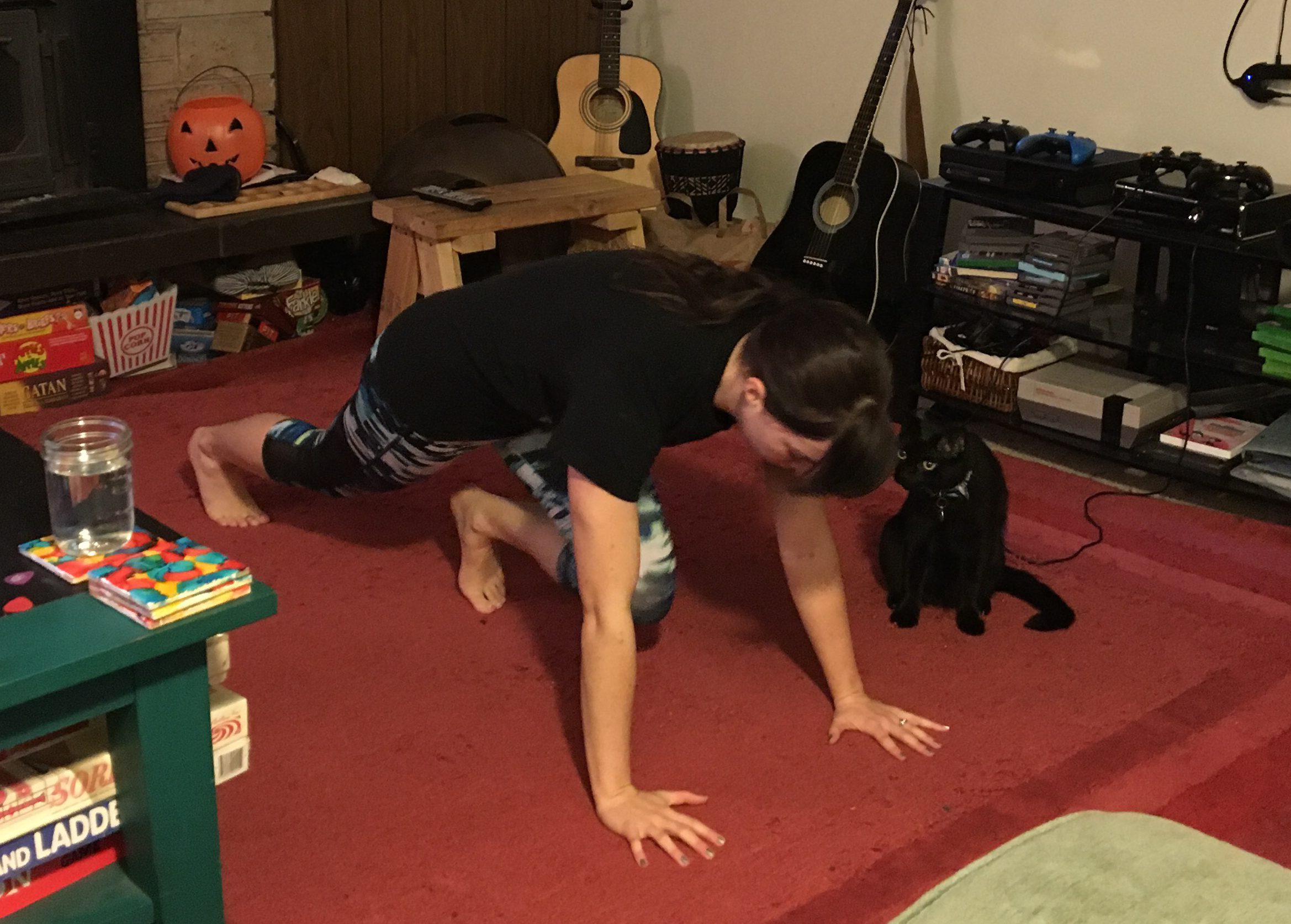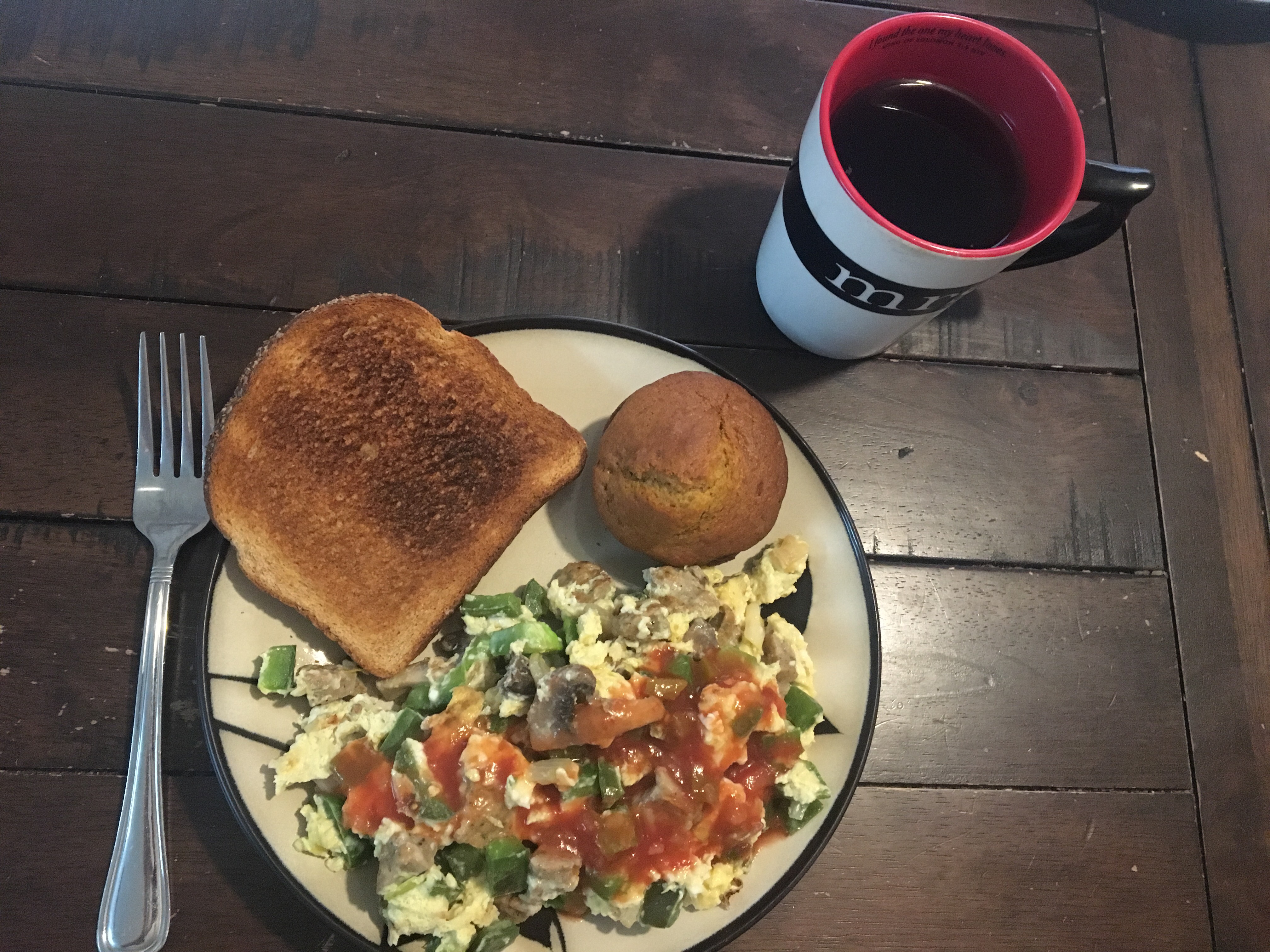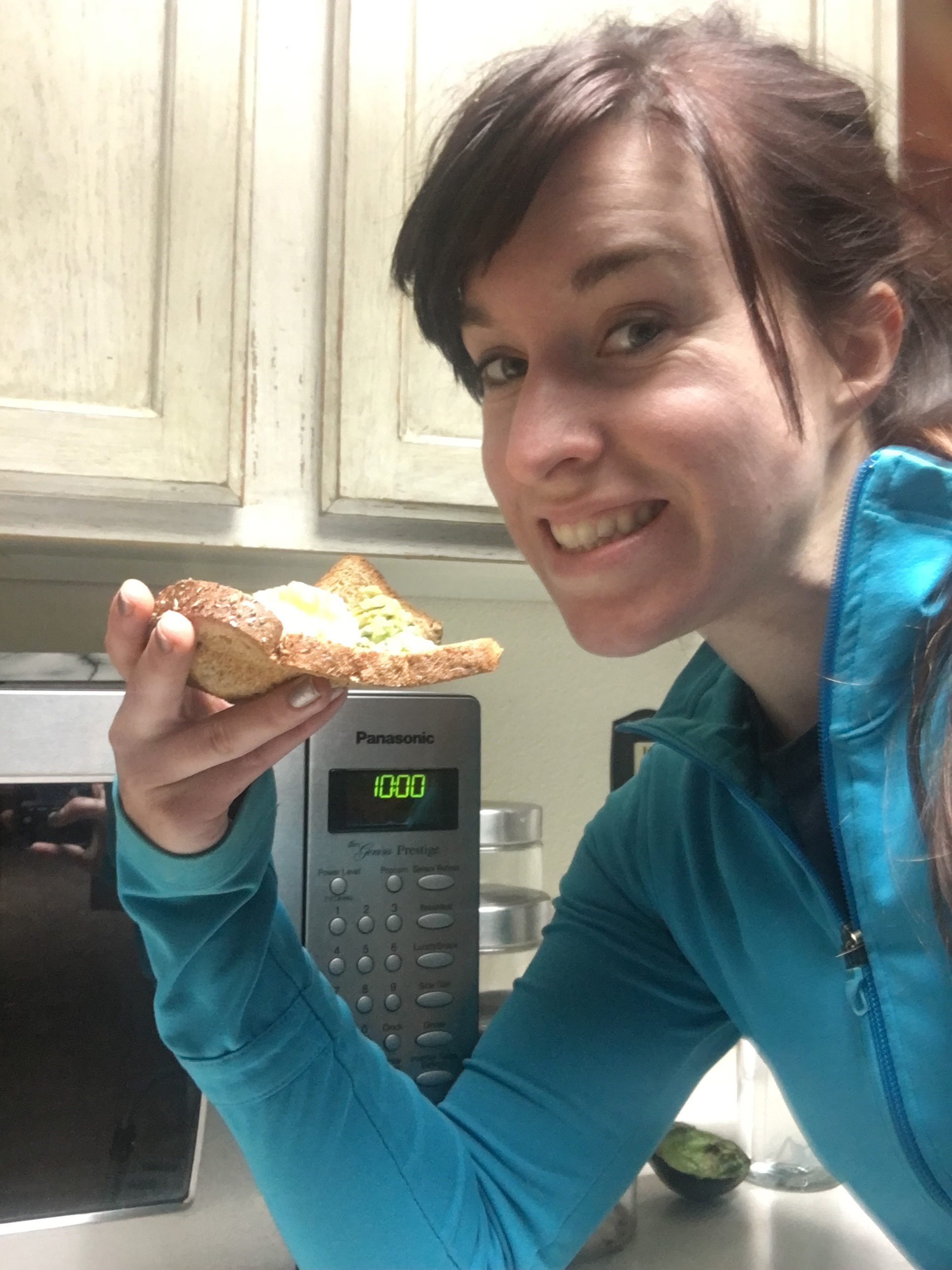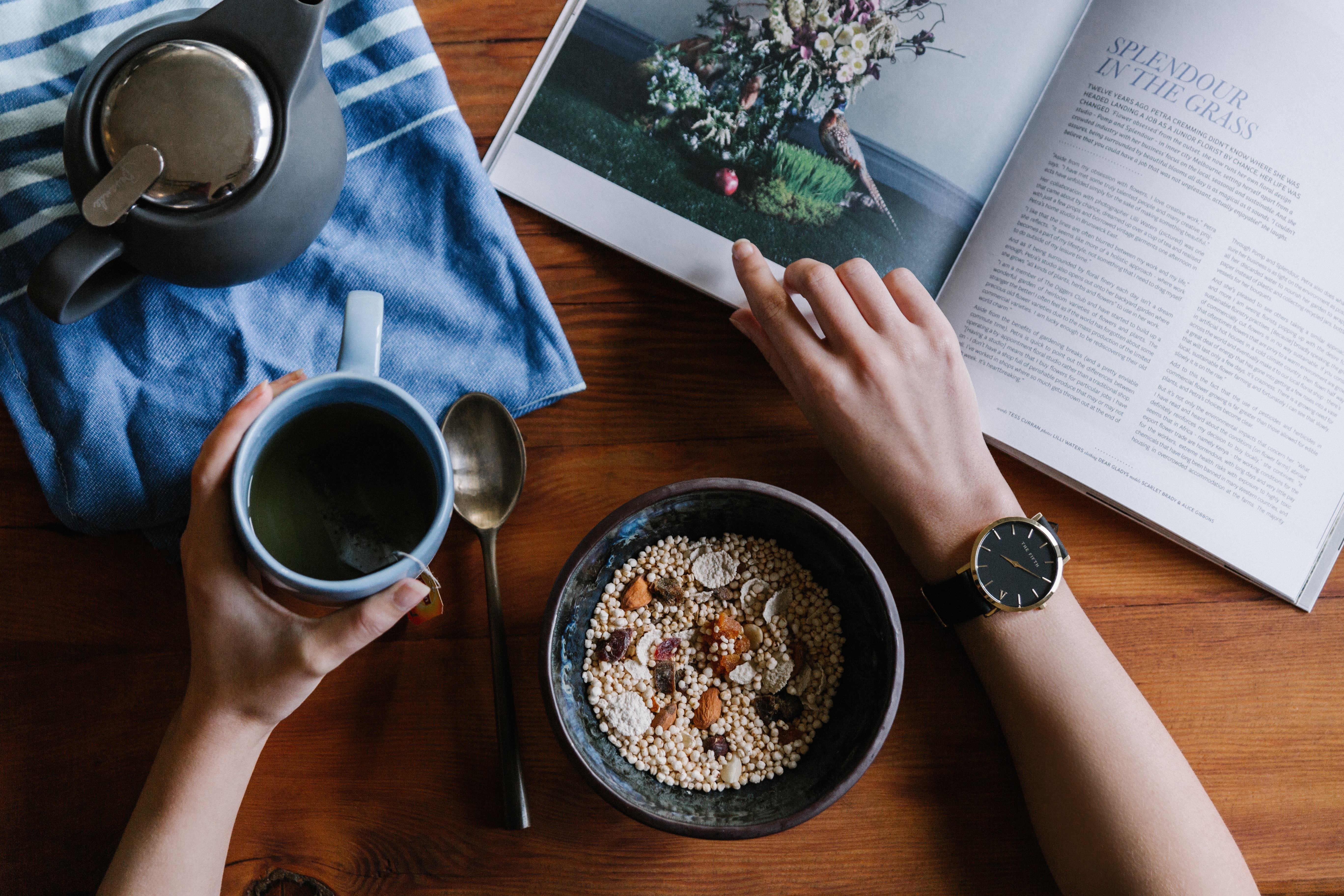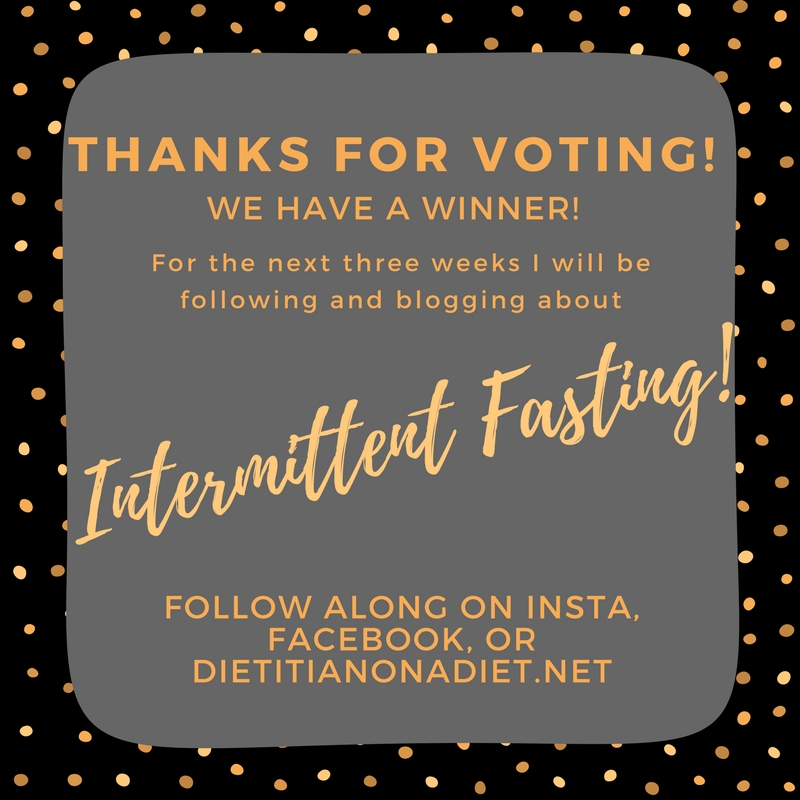There are a lot of health claims around the benefits of intermittent fasting. As there is so much to say about this topic, I had to split the research into two parts. I am sure this is nowhere near a comprehensive compilation, but I have done my best to boil down the results of a variety of research studies on the potential benefits of intermittent fasting.
One major thing to note as you read through this is that there are a lot of documented health benefits to eating less than we usually do, or in scientific terms, caloric restriction. Most studies on intermittent fasting restricted intakes to 0-50% of the participants’ calorie needs for 2-4 days per week. On the rest of the days, they could eat as much as they wanted. Some studies on intermittent reported subjects overall caloric intake, others didn’t, so it can be tough to make that distinction. In general, when animals are on an intermittent fasting regimen, they eat enough on feeding days to compensate and usually do not end up restricting calories (Anson et al 2003; Descamps et al 2005). Humans, however, usually do not eat enough to compensate and end up restricting calories via intermittent fasting (Harvie et al 2011; Heilbronn et al 2005; Catennaci et al 2016). In other words, the results in many of the human studies could be based on the fact that calories were restricted by fasting, not by anything special about fasting itself. We need more research to distinguish between the two!
Can intermittent fasting…
…cause fat loss?
- Animals on both intermittent fasting and caloric restriction lose fat (Anson et al 2003; Lane, Ingram, Roth 1999; Pashko & Shwartz 1996; Duan et al 2003). One study on mice showed that even though the mice on intermittent fasting averaged the same amount of calories as the normally-fed mice, they did weigh a little less (Anson et al 2003).
- Humans lose fat with intermittent fasting too, though most humans who followed intermittent fasting ended up eating fewer calories overall, also achieving caloric restriction (Harvie et al 2011; Heilbronn et al 2005; Catennaci et al 2016). It is relevant to note here that in studies that asked subjects about their hunger levels, subjects were more hungry on an intermittent fasting diet.
- In one study, women who restricted calories via intermittent fasting lost more body weight than women on daily caloric restriction (Harvie et al 2013). In both cases, their calories were restricted.
- One study found no difference in metabolism (measured by resting metabolic rate (RMR)) between those who had intermittently fasted and those who did not (Heilbronn et al 2005).
- Studies on caloric restriction show that subjects tend to lose muscle mass while losing fat, but can prevent this by eating a high-protein diet while restricting calories (Piatti et al 1994). Two studies have shown that while intermittent fasting, subjects lost fat and were able to maintain muscle mass while eating a lower protein diet (Bhutani et al 2010; Catennaci et al 2016).
- The boiled-down verdict: Fat loss can be achieved by eating less overall, either through eating a little bit less each day or fasting (eating ~25% of your daily needs) every other day or a couple of days per week. Based on limited research, it seems you can maintain muscle while losing fat, either by restricting calories and eating plenty of protein, or by restricting calories using intermittent fasting. It’s possible that weight loss could be faster when calories are restricted via intermittent fasting, but more research is needed to confirm that.
…preserve brain function?
- Animals that eat intermittently experienced slower progression of age-related memory loss and neurodegenerative diseases (Parkinson’s, Hungtington’s, and Alzheimer’s) (Anson et al 2003; Halagappa et al 2007; Duan et al 2003). This is also seen with caloric restriction in both animals and humans (Imai 2010;Hursting et al 2003; Pitsikas et al 1990; Halagappa et al 2007; Yu and Mattson, 1999).
- Mice on calorie restriction via intermittent fasting had less brain damage during and after a stroke than mice who ate all they wanted (Arumugam et al 2009).
- The boiled-down verdict: In mice, it’s possible to prevent and slow brain aging, damage, or diseases by eating less overall, either through eating a little bit less each day or fasting every other day. We need more research to know how this applies to humans.
…help you live longer?
- Animals that eat intermittently (every other day) can live more than 30% longer than those who eat daily (Goodrick et al. 1983; Anson et al 2003, Duan et al 2003).
- Mice lived 35-60% longer when on caloric restriction but meeting protein, vitamin, and mineral needs (Weindruch et al 1986; Imai 2010; Hursting et al 2003; Canto & Auwerx 2009; Keenan et al 1997, Pugh et al 1999)
- The boiled-down verdict: As long as macronutrient, vitamin, and mineral needs are met, both intermittent fasting and caloric restriction can promote longevity in animals. Human research on longevity is really tricky (and expensive), so that’s lacking.
Check out this post to learn about the research on intermittent fasting and diabetes, cancer, asthma, and more!
